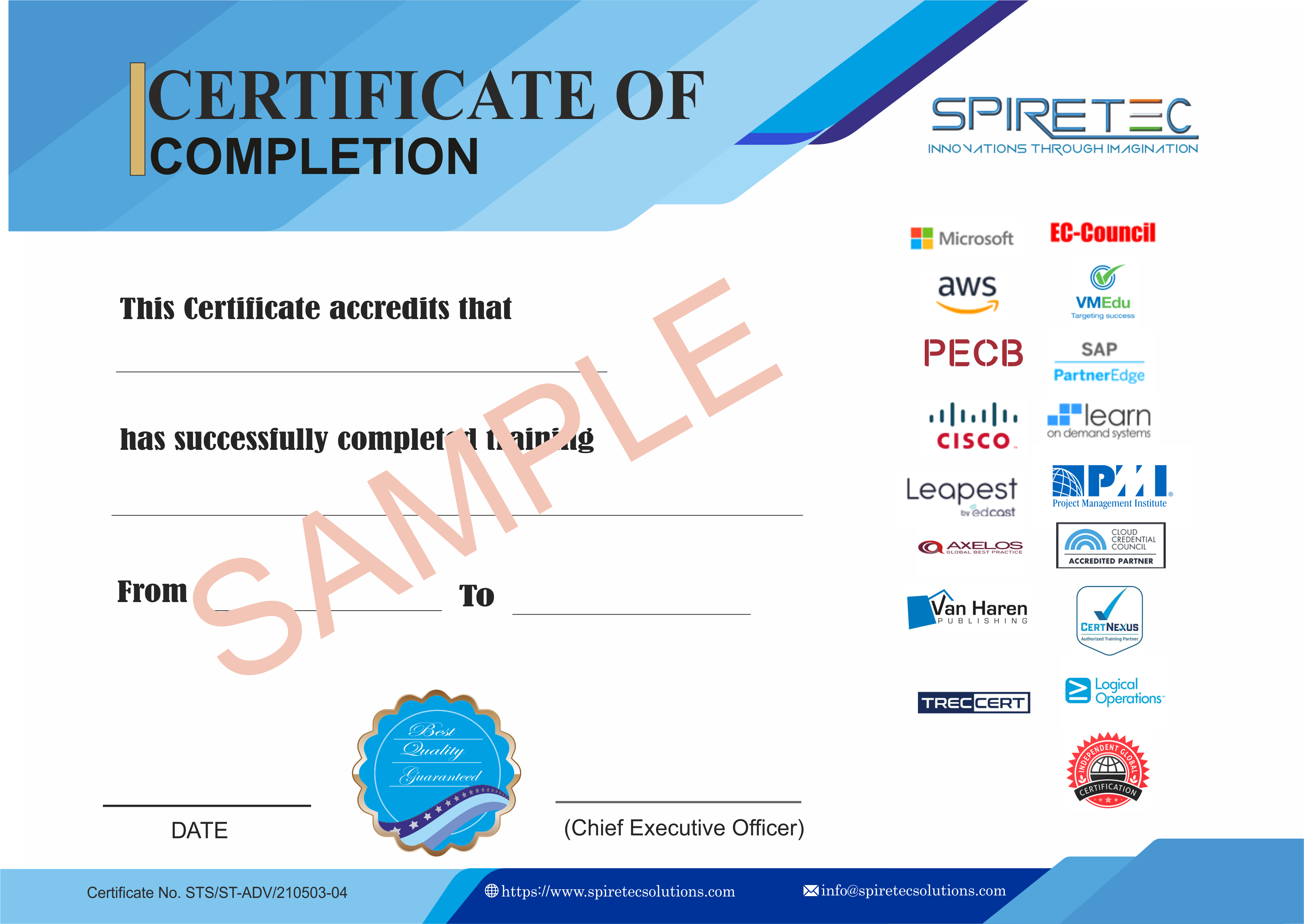The M55339A: Programming in C# course is an in-depth training program designed to equip learners with the foundational and advanced skills needed to develop applications using C#. Throughout the course, students will master C# syntax, starting with basic .NET applications, data types, and expressions, before moving on to more complex language constructs. The curriculum includes method definitions, overloading, and exception handling, coupled with practical labs such as developing and extending a class enrollment application.
As learners progress, they'll delve into C# language concepts, structures, collections, events, and classes, including interfaces and generics. They'll also explore inheritance, polymorphism, and class hierarchies, ensuring they are well-versed in object-oriented programming principles. The course also covers essential topics like file I/O, database access using Entity Framework and LINQ, network programming, and constructing graphical user interfaces with data binding and styling.
Advanced topics include application performance with multitasking and asynchronous calls, C# interop with dynamic objects and resource management, and designing for reuse with metadata, attributes, and assemblies. The hands-on labs throughout the course, such as adding a graphical user interface or tuning performance, provide practical experience and reinforce learning. By the end of the course, participants will be proficient in C# and equipped to create robust, efficient, and maintainable applications.
Who Should Attend?
This course is intended for:
-
Experienced Developers: Those with prior programming experience in languages such as C, C++, JavaScript, Objective-C, Microsoft Visual Basic, or Java.
-
Professional Developers: Individuals who have at least one month of experience programming in an object-oriented environment.
Prerequisites:
-
For students who don’t have prior experience of programming in a high-level language, it is recommended that they take the 55337AC course, which uses C# as the language to facilitate an introduction to programming.
-
Course 55339AC focuses on the C# language itself, making it an excellent follow-on course.
Course Outline:
Module 1: C# Syntax
Microsoft .NET 6 provides a comprehensive development platform that you can use to build, deploy, and manage applications and services. By using .NET, you can create visually compelling applications, enable seamless communication across technology boundaries, and provide support for a wide range of business processes. In this module, you’ll learn about some of the core features provided by .NET and Microsoft Visual Studio. You’ll also learn about some of the core C# constructs that enable you to start developing .NET applications.
Lessons
-
Lesson 1: Writing Applications in C# and .NET
-
Lesson 2: Types of Data and Expressions
-
Lesson 3: C# Language Constructs
After completing this module, students will be able to:
-
Write Applications in C# and .NET
-
Explain types of Data and Expressions
-
Understand C# Language Constructs
Module 2: C# Language Concepts
Applications often consist of logical units of functionality that perform specific functions, such as providing access to data or triggering some logical processing. C# is an object-orientated language and uses the concept of methods to encapsulate logical units of functionality. Although a good practice is to have methods that do just one thing, they can be as simple or as complex as you like. It is also important to consider what happens to the state of your application when an exception occurs in a method.
Lessons
After completing this module, students will be able to:
Module 3: C# Structures, Collections and Events
To create effective applications you must first learn some fundamental C# constructs. You need to know how to create simple structures to represent the data items you are working with. You need to know how to organize these structures into collections, so that you can add items, retrieve items, and iterate over your items. Finally, you need to know how to subscribe to events so that you can respond to the actions of your users.
Lessons
After completing this module, students will be able to:
-
Create and use structs and enums
-
Organize data into collections
-
Create and subscribe to events
Module 4: C# Classes
In this module, you’ll learn how to use interfaces and classes to define and create your own custom, reusable types. You’ll also learn how to create and use enumerable type-safe collections of any type.
Lessons
After completing this module, students will be able to:
-
Use interfaces and classes to define and create custom, reusable types
-
Create and use enumerable type-safe collections of any type
Module 5: C# Inheritance
In this module, you’ll learn how to use inheritance to create class hierarchies and to extend .NET types.
Lessons
After completing this module, students will be able to:
-
Use inheritance to factor common functionality into a base class
-
Implement polymorphism by using an abstract method
-
Create a custom exception class
Module 6: Input and Output
In this module, you’ll learn how to read and write data by using transactional filesystem I/O operations, how to serialize and deserialize data to the filesystem, and how to read and write data to the filesystem by using streams.
Lessons
After completing this module, students will be able to:
-
Read and write data by using transaction filesystem I/O operations
-
How to serialize and deserialize data to the file system
-
How to read and write data to the filesystem by using streams
Module 7: Database Access
In this module, you’ll learn how to use Entity Framework and how to query many types of data by using Language-Integrated Query (LINQ).
Lessons
After completing this module, students will be able to:
Module 8: Using the Network
In this module, you’ll learn how to use the request and response classes in the System.Net namespace to directly manipulate remote data sources. You’ll also learn about REST and OData and look briefly at ASP.NET Core MVC.
Lessons
After completing this module, students will be able to:
-
Send data to remote web services
-
Access remote data over web services
-
Understand REST and OData
Module 9: Graphical User Interfaces
In this module, you’ll learn how to use Extensible Application Markup Language (XAML) and Windows Presentation Foundation (WPF) to create engaging UIs.
Lessons
After completing this module, students will be able to:
-
Use Extensible Application Markup Language (XAML)
-
Create and use user controls
-
Use styles and animations
Module 10: Application Performance
In this module, you’ll learn how to improve the performance of your applications by distributing your operations across multiple threads.
Lessons
After completing this module, students will be able to:
-
Improve performance by distributing operations across multiple threads
-
Use the async and await keywords to implement asynchronous methods
-
Use events and user controls to provide visual feedback during long-running operations
Module 11: C# Interop
In this module, you’ll learn how to interoperate with unmanaged code in your applications and how to ensure that your code releases any unmanaged resources.
Lessons
After completing this module, students will be able to:
Module 12: Designing for Reuse
In this module, you’ll learn how to consume existing assemblies by using reflection, and how to add additional metadata to types and type members by using attributes. You’ll also learn how to generate code at runtime by using the Code Document Object Model (CodeDOM) and how to manage your .NET assemblies.
Lessons
After completing this module, students will be able to:
-
Consume existing assemblies by using .NET reflection
-
Add additional metadata to types and type members using attributes
-
Create custom attributes
-
Get information about assemblies







 Live Online Training (Duration : 40 Hours)
Live Online Training (Duration : 40 Hours)
